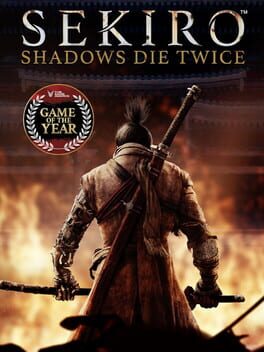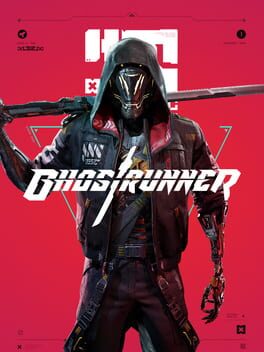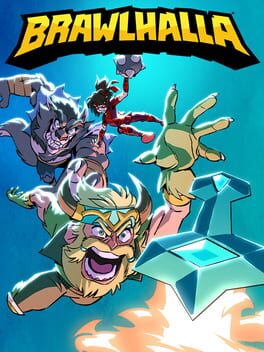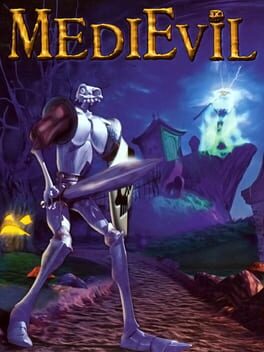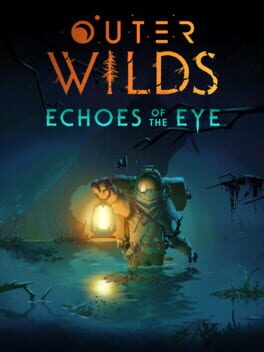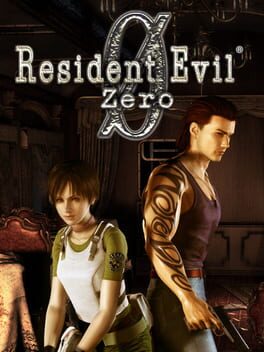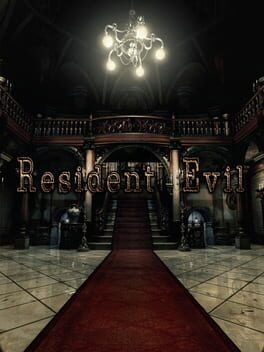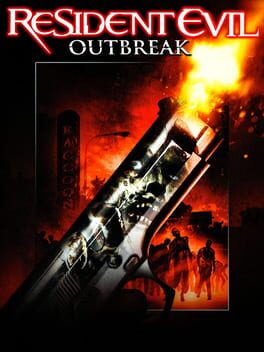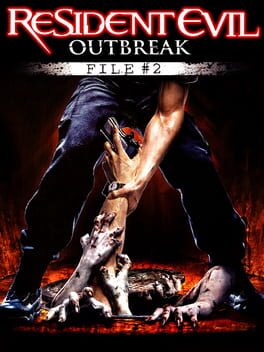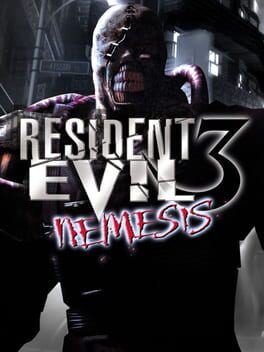RyzeWither
22 reviews liked by RyzeWither
Ico
2001
Handholding has never been this good.
In all seriousness Ico is truly one of a kind game with it's unique and ambient atmosphere backed up by it's environments that still looks good thanks to it's beatiful art direction,even the puzzles knows how to take advantage of these environments and play it in very interesting way that does makes me think out of the box couple times,it is a shame that the three to last level is an underwhelming compared to previous ones as its just the same level but reversed with some new tweaks.
Some might say the combat and the movement is too loose or a bit basic but i think it's still bearable just take some time to get used to it's movement and positioning ICO then ur good for the rest of the game and despite it's minimalistic and subtle nature of the story it's still an pretty story that the game succeed at implementing this through gameplay,world,and soundtrack.
Truth be told going into ICO i'm a bit afraid that it will ended up be somewhat an shallow experience but thankfully that's not the case and i am glad to finally experience this amazing gem 2 decades later.
In all seriousness Ico is truly one of a kind game with it's unique and ambient atmosphere backed up by it's environments that still looks good thanks to it's beatiful art direction,even the puzzles knows how to take advantage of these environments and play it in very interesting way that does makes me think out of the box couple times,it is a shame that the three to last level is an underwhelming compared to previous ones as its just the same level but reversed with some new tweaks.
Some might say the combat and the movement is too loose or a bit basic but i think it's still bearable just take some time to get used to it's movement and positioning ICO then ur good for the rest of the game and despite it's minimalistic and subtle nature of the story it's still an pretty story that the game succeed at implementing this through gameplay,world,and soundtrack.
Truth be told going into ICO i'm a bit afraid that it will ended up be somewhat an shallow experience but thankfully that's not the case and i am glad to finally experience this amazing gem 2 decades later.
Ghostrunner
2020
Silent Hill 2
2001
Silent Hill 2
2001
Final Fantasy VII
1997
i can't honestly express my feelings and how glad i am replaying this classic after so many years my perception on it may have been little tainted by the fans nor the other games but now that i've replayed it i am so glad to finally say,yes Final Fantasy VII is indeed a memorable classic.
from the get go it sets itself very differently than most JRPGS one that's quick and immediately straight to the point making the tone quite exciting and engaging,even from there on the tone stays relatively consistent and just keeps getting better with more added depth to the main cast making them more memorable and likeable while also reveals and executed it's theme of the story very well.
gameplay wise it uses the ATB system which i do enjoyed but there are certain times where it felt like slowing down your movement mainly due to menuing this is probably more so personal issue as i haven't really played these games since so long but it is still fun when menuing didn't slow and ruin ur movement and plan.
i also don't really liked most of its side quest or optional content in general cool some of them reveals more and has cool equipment behind it but 90% of the time it's just point A to point B chore grinding.
that aside i don't really have major problem with this game really it pretty much excels at what good JRPG should strive for and more from story,gameplay,music and personally,i have a great time with this amazing game.
from the get go it sets itself very differently than most JRPGS one that's quick and immediately straight to the point making the tone quite exciting and engaging,even from there on the tone stays relatively consistent and just keeps getting better with more added depth to the main cast making them more memorable and likeable while also reveals and executed it's theme of the story very well.
gameplay wise it uses the ATB system which i do enjoyed but there are certain times where it felt like slowing down your movement mainly due to menuing this is probably more so personal issue as i haven't really played these games since so long but it is still fun when menuing didn't slow and ruin ur movement and plan.
i also don't really liked most of its side quest or optional content in general cool some of them reveals more and has cool equipment behind it but 90% of the time it's just point A to point B chore grinding.
that aside i don't really have major problem with this game really it pretty much excels at what good JRPG should strive for and more from story,gameplay,music and personally,i have a great time with this amazing game.
Brawlhalla
2014
I was 22 when I had my first psychotic episode. I had dropped everything and moved to Austin with a girlfriend who was not a good fit for me, pursuing my dream of (somehow) becoming a professional actor. None of this was going well; the relationship and the jobs I was working were all dead ends that I wasn't really acknowledging or dealing with.
Eventually all the stress and self-deceit came to a head in a giant fight, and I started thinking things that were decidedly false. I came to believe that I was the center of a conspiracy of surveillance, Truman Show style, that was being run by my friends. Every detail that I noticed confirmed this: I saw a car make a weird U-turn which to me was proof positive that it was following me. A dump truck passed the window with a flashing yellow light; this was clearly someone trying to signal to me that they were in on the conspiracy. A cat sitting on the hood of a car must have been some kind of sophisticated spy camera.
I never experienced hallucinations, I was never violent and I didn't cackle maniacally like every single clueless, no-effort depiction of mental illness in Hollywood and elsewhere. The only thing that was missing was my capacity to critically examine my own ideas.
You know how when you're thinking super hard about something for a long time, and you finally figure it out, and you get that big rush of endorphins like "ahhhhh I finally got it." It's a great feeling, but you have to work to get there right? You have to come up with and reject a lot of ideas before you find the one that fits. Well, I was having that "ahhhh" feeling with every fleeting notion. You don't realize how many thoughts you reject as nonsense until you lose the ability to do so.
You might see a squirrel run toward you and think "Wouldn't it be cool if that was some kind of little robot?" then immediately reject that idea without a second thought. That rejection is what was broken in me; even the most momentary flight of fancy became the unassailable truth. I saw the squirrel and it was self-evident that it was being remotely-controlled as a way to keep tabs on me. Not a single thought in my mind that any of this stuff was wrong.
Public mental health facilities in Texas at the turn of millennium were about as you'd expect. I was there involuntarily and kept trying to escape, so I spent a lot of the first few days restrained (more than 20 years later I still get a panicky feeling in my chest when I think about being strapped to that bed). I was shot up with Haldol that left me a drooling, twitching mess. At no point did I receive anything resembling therapy. After a few weeks the doctor assigned to my case finally came back from vacation and I seemed fine so they basically shrugged and let me go.
"Depression with psychotic features" they called it that first time. Eventually, after experiencing more episodes and being institutionalized and re-diagnosed a few more times, they settled on the diagnosis of Bipolar I disorder and I've been stable on lithium for over a decade now. I was lucky and got basically the happiest possible outcome. I don't think that's the case for most people dealing with mental health issues, especially psychosis.
Mental health is like sexuality, in that we as a society are obsessed with it but only seem to engage with it in the most unhealthy ways. In our entertainment media, references to insanity are constant. Calling someone's sanity into question is an easy and common insult. After every mass shooting, the airwaves are crammed with politicians scapegoating the mentally ill. We're finally to the point where (in some circles) it's considered unacceptable to use "gay" or "retarded" as insults, but nobody bats an eye if you call someone "crazy" or "psycho".
But for all of that, it's basically unheard of for someone in power to say anything meaningful about mental health. When Hollywood approaches the topic, the results are universally rancid. Games tend to fall into two camps: crazy-person-as-horror-villain studio hack jobs, or autobiographical indies that actually bring some experience to the picture.
And that's why Hellblade stands out so much to me. It's not an indie; it has the full weight of a storied and talented (albeit small) studio behind it. But they've done the work to actually try to depict psychosis in a realistic way, that brings the player into the experience as an exercise in empathy, not just a cheap aesthetic choice.
It was a marvel to me how the puzzles in the game are built around seeing patterns that aren't really there, exactly like I did during my psychotic episodes. The scene where all the trees have eyes, but they're really just tricks of the light, was so incredibly true to my experience. I never saw things that weren't there; I saw things that were there but misinterpreted them in critical ways, just like Senua.
And Senua? Possibly my favorite protagonist of any game. Melina Jeurgens gives it so much of herself, and her character design is such a breath of fresh air in an industry full of gross fan service. She looks like a real person! She's still pretty, but doesn't look like a RealDoll that someone dressed up in cosplay gear.
I could only play this game in short sessions because it's so damn intense. The story hits hard, and Senua's agonizing deaths were challenging. Mechanically, the game is really quite light. Only a couple gameplay verbs are made available as the story progresses very linearly. Hellblade aims to challenge the player on a sensory, emotional and intellectual level more than a gameplay one. For me, it was deeply effective and affecting.
With the sequel on the horizon it's exciting to imagine what Ninja Theory has in store for us next. It really feels like the conversation around mental health is starting to turn; the crazies are finally out telling their stories, taboos and misinformation be damned. I love how indie developers have stepped up and started raising the level of discourse around mental health and I really hope that more and bigger studios follow suit. Fear of retaliation or judgment can make mental illness a really isolating experience. It really does feel good to feel seen, and playing a game like Hellblade is really great reminder that I'm not alone.
Eventually all the stress and self-deceit came to a head in a giant fight, and I started thinking things that were decidedly false. I came to believe that I was the center of a conspiracy of surveillance, Truman Show style, that was being run by my friends. Every detail that I noticed confirmed this: I saw a car make a weird U-turn which to me was proof positive that it was following me. A dump truck passed the window with a flashing yellow light; this was clearly someone trying to signal to me that they were in on the conspiracy. A cat sitting on the hood of a car must have been some kind of sophisticated spy camera.
I never experienced hallucinations, I was never violent and I didn't cackle maniacally like every single clueless, no-effort depiction of mental illness in Hollywood and elsewhere. The only thing that was missing was my capacity to critically examine my own ideas.
You know how when you're thinking super hard about something for a long time, and you finally figure it out, and you get that big rush of endorphins like "ahhhhh I finally got it." It's a great feeling, but you have to work to get there right? You have to come up with and reject a lot of ideas before you find the one that fits. Well, I was having that "ahhhh" feeling with every fleeting notion. You don't realize how many thoughts you reject as nonsense until you lose the ability to do so.
You might see a squirrel run toward you and think "Wouldn't it be cool if that was some kind of little robot?" then immediately reject that idea without a second thought. That rejection is what was broken in me; even the most momentary flight of fancy became the unassailable truth. I saw the squirrel and it was self-evident that it was being remotely-controlled as a way to keep tabs on me. Not a single thought in my mind that any of this stuff was wrong.
Public mental health facilities in Texas at the turn of millennium were about as you'd expect. I was there involuntarily and kept trying to escape, so I spent a lot of the first few days restrained (more than 20 years later I still get a panicky feeling in my chest when I think about being strapped to that bed). I was shot up with Haldol that left me a drooling, twitching mess. At no point did I receive anything resembling therapy. After a few weeks the doctor assigned to my case finally came back from vacation and I seemed fine so they basically shrugged and let me go.
"Depression with psychotic features" they called it that first time. Eventually, after experiencing more episodes and being institutionalized and re-diagnosed a few more times, they settled on the diagnosis of Bipolar I disorder and I've been stable on lithium for over a decade now. I was lucky and got basically the happiest possible outcome. I don't think that's the case for most people dealing with mental health issues, especially psychosis.
Mental health is like sexuality, in that we as a society are obsessed with it but only seem to engage with it in the most unhealthy ways. In our entertainment media, references to insanity are constant. Calling someone's sanity into question is an easy and common insult. After every mass shooting, the airwaves are crammed with politicians scapegoating the mentally ill. We're finally to the point where (in some circles) it's considered unacceptable to use "gay" or "retarded" as insults, but nobody bats an eye if you call someone "crazy" or "psycho".
But for all of that, it's basically unheard of for someone in power to say anything meaningful about mental health. When Hollywood approaches the topic, the results are universally rancid. Games tend to fall into two camps: crazy-person-as-horror-villain studio hack jobs, or autobiographical indies that actually bring some experience to the picture.
And that's why Hellblade stands out so much to me. It's not an indie; it has the full weight of a storied and talented (albeit small) studio behind it. But they've done the work to actually try to depict psychosis in a realistic way, that brings the player into the experience as an exercise in empathy, not just a cheap aesthetic choice.
It was a marvel to me how the puzzles in the game are built around seeing patterns that aren't really there, exactly like I did during my psychotic episodes. The scene where all the trees have eyes, but they're really just tricks of the light, was so incredibly true to my experience. I never saw things that weren't there; I saw things that were there but misinterpreted them in critical ways, just like Senua.
And Senua? Possibly my favorite protagonist of any game. Melina Jeurgens gives it so much of herself, and her character design is such a breath of fresh air in an industry full of gross fan service. She looks like a real person! She's still pretty, but doesn't look like a RealDoll that someone dressed up in cosplay gear.
I could only play this game in short sessions because it's so damn intense. The story hits hard, and Senua's agonizing deaths were challenging. Mechanically, the game is really quite light. Only a couple gameplay verbs are made available as the story progresses very linearly. Hellblade aims to challenge the player on a sensory, emotional and intellectual level more than a gameplay one. For me, it was deeply effective and affecting.
With the sequel on the horizon it's exciting to imagine what Ninja Theory has in store for us next. It really feels like the conversation around mental health is starting to turn; the crazies are finally out telling their stories, taboos and misinformation be damned. I love how indie developers have stepped up and started raising the level of discourse around mental health and I really hope that more and bigger studios follow suit. Fear of retaliation or judgment can make mental illness a really isolating experience. It really does feel good to feel seen, and playing a game like Hellblade is really great reminder that I'm not alone.
Fun fact: Melina Juergens, the actress who portrays Senua, didn't have any prior experience with acting before this game. Actually, she was a video editor for Ninja Theory and was invited to perform the role while they were looking for an actress. Finally, after seeing her perfomance they gave her the role.
Perfection in videogames is impossible. As well as it seems impossible to find a game in which there are only negative elements. In the middle of the paradox we find those kind of games whose only objective is to fight against the player, appearing as imprecise and frustrating for a narrative purpose. Games like Nier Automata or Drakengard, whose amount of endings is linked with the massive number of runs requiered to fully understand the story Yoko Taro has chosen to tell, are made in order to make people feel what some of the enemies of those stories were perceiving. Inside a medium as videogames, interactivity and storytelling moves both in the same direction. Expressions like "I would see a movie if I wanted to experience a story" doesn't work with the quoted productions, because the only way a person can really connect with the ideas of the creator, with the worldbuilding and all the iconic heroes, is playing that game, despite all the terrible and uncomfortable moments we will be forced to experience. Hellblade: Senua's Sacrifice follows this same direction, but fullfilling a different purpose.
Ninja Theory, with Hellblade, wanted to create a maximum expression of mental illness inside videogame medium. They wanted to grant us a way to comprehend what a person as Senua senses in her daily life, suffering from psychosis. We follow her journey through hell in order to save the love of her life, Dillion, with the help of the storyteller Druth while the shadows of the past of the protagonist seeks us in every moment. All this journey hides us more than what we see, because there are secrets we don't know and we notice this as soon as game mechaniques starts to repeat in a strange way, when a menancing annoucement of an hypotetical permadeath seems to never happens, when the obtainment of all the collectibles is essential to unlock a terrible secrets which changes our perspective of everything we have experienced and every character we have met. Hellblade tricks the gamer in a way not so different from what the northern myths has done to vikings. We discovers, going down inside this mad journey, that Hellblade wants to be a sort of encyclopedia of all the stories of vikings gods, ending to criticize them because they are nothing else than a way to calm fears and visions of those populations, justifing all the terrible and non-sensical acts they did, mostly for a cold search for power. Senua is a great warrior, and every fight is not so dangerous as it seems, also because she is helped by the voices she hears in her mind. At the same time what creates an unbalanced difficulty is the increasing amount of enemies and powerful figures we find, never truly defeating anyone. Because all the puzzles, all the mysterious dreams and memories we explore, every rune is nothing else than a way to escape from the past, with the final objective of making peace with it. Hellblade is an anti-game for all these reasons, but it is the strongest experience I have ever done in years of gaming.
Ninja Theory, with Hellblade, wanted to create a maximum expression of mental illness inside videogame medium. They wanted to grant us a way to comprehend what a person as Senua senses in her daily life, suffering from psychosis. We follow her journey through hell in order to save the love of her life, Dillion, with the help of the storyteller Druth while the shadows of the past of the protagonist seeks us in every moment. All this journey hides us more than what we see, because there are secrets we don't know and we notice this as soon as game mechaniques starts to repeat in a strange way, when a menancing annoucement of an hypotetical permadeath seems to never happens, when the obtainment of all the collectibles is essential to unlock a terrible secrets which changes our perspective of everything we have experienced and every character we have met. Hellblade tricks the gamer in a way not so different from what the northern myths has done to vikings. We discovers, going down inside this mad journey, that Hellblade wants to be a sort of encyclopedia of all the stories of vikings gods, ending to criticize them because they are nothing else than a way to calm fears and visions of those populations, justifing all the terrible and non-sensical acts they did, mostly for a cold search for power. Senua is a great warrior, and every fight is not so dangerous as it seems, also because she is helped by the voices she hears in her mind. At the same time what creates an unbalanced difficulty is the increasing amount of enemies and powerful figures we find, never truly defeating anyone. Because all the puzzles, all the mysterious dreams and memories we explore, every rune is nothing else than a way to escape from the past, with the final objective of making peace with it. Hellblade is an anti-game for all these reasons, but it is the strongest experience I have ever done in years of gaming.

